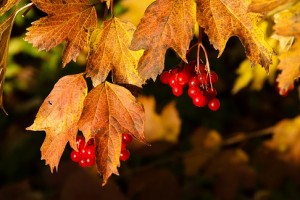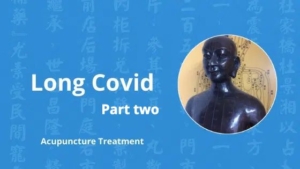Fall 2022 Newsletter – Long Covid (Part 2)
In the last newsletter, I mentioned a common denominator in the Pattern Physiology of Long Covid being Kidney, Spleen, and Lung Qi (Chee) Deficiency. So far we looked into Kidney deficiency as being the most detrimental among the three.
According to the Six Levels of Physiology In Chinese Medicine Spleen and Lung Circuits belong to the level of Taiyin.. Therefore let me address these two Circuits together as we’re now in transition between these two systems.
Fine print: Kidney Deficiency has NOTHING to do with renal failure, neither does Lung deficiency with COPD or Spleen Deficiency with hyposplenism. We’re talking about weakened ENERGY of a specific Circuit (or a channel), not an organ.
Spleen… Why should it matter to you?

- Responsible for transformation & transportation of nutrients
- Controls the muscles and the four limbs
- Houses thoughts
- Controls sleep
Symptoms of SPLEEN deficiency may include:
- Abdominal bloating after eating
- Foggy-headedness
- Intolerance of Damp/Humid weather
- Loose stool (at times with undigested food)
- Sugar cravings
- Sudden energy drop
The Health Consequences of Spleen Qi Deficiency
If left untreated, spleen qi deficiency can eventually result in a blood deficiency (not enough qi to create and nourish the blood), and/or a spleen yang deficiency (the loss of the warming function of the spleen). When blood is not properly nourished or there is not enough being generated by the spleen, the heart and lungs are easily affected, leading to a decline in their function.
How to Avoid Spleen Qi Deficiency with Your Diet
- Eat at regular times/intervals each day
- Eat a larger breakfast, moderate lunch, and light dinner
- Don’t eat late at night
- Don’t overeat
- Avoid under-eating
- Be present when eating
- Chew your food slowly and thoroughly
- Avoid ice drinks or ice water year-round
- Avoid Raw and cold foods during months with “R” in it
Lungs.. Why should it matter to you?
 In Chinese Medicine Fall is the season associated with the metal element. This is the season of contraction and moving inwards, of dryness, and the Lungs and Large intestine are the organs associated with this element. It’s at this time of the year that the Lungs are at their most vulnerable and most likely to be affected by wind, cold, and dryness. Chronic coughs tend to come up this time of year as it gets quite cool and dry, and colds and flu become more prevalent.
In Chinese Medicine Fall is the season associated with the metal element. This is the season of contraction and moving inwards, of dryness, and the Lungs and Large intestine are the organs associated with this element. It’s at this time of the year that the Lungs are at their most vulnerable and most likely to be affected by wind, cold, and dryness. Chronic coughs tend to come up this time of year as it gets quite cool and dry, and colds and flu become more prevalent.
Functions of the Lungs (From TCM view)
- Responsible for respiration (Governs qi and respiration)
- Controls diffusing and descending of qi
- Regulates water passages
- Controls the skin and space between skin and muscle (cou li)
- Manifests in the body hairs
- Opens to the nose
- Controls nasal mucus
- Houses the corporeal soul (Po)
- Affected by worry, grief, and sadness
Symptoms of Lung (circuit/singular) deficiency may include:
- A cough, which may be mild but continuous
- Shortness of breath
- Low speaking voice
- A tendency to catch colds
- Spontaneous daytime sweating
- Shortness of Breath
- Dislike of Speaking
- Fatigue
- Weak Voice
- Symptoms get worse with exertion
How to Support Lung energy with Your Diet
- Eating fewer salads and more soups. The ingredients are easier to digest and the watery medium nurtures yin and fluids in the body
- Cooking by steaming and boiling foods is more enriching to the yin as the foods retain more moisture
- Apples and pears nourish and moisten Lung Yin, particularly when poached
- Honey in warm water before bed can ease a dry throat, and assist with dry constipation
- Pungent foods can help disperse mucus, such as onion, garlic, turnip, ginger, or horseradish
- Such foods as seaweeds, marshmallow root, flaxseed, and fenugreek can help repair the mucus membranes of the Lung and Large intestines
In the very beginning stages of a cold, when you initially have that first thought ‘I might be coming down with something is the best time to try and treat and evade it. This ancient Chinese herbal remedy is used for this very early stage of a cold.Ingredients
- 3 spring onions, white parts only, chopped roughly
- 2 slices ginger (approx. 1/2″ piece size)
- 2 sprigs of mint
- 2 cups of water
Method
Combine all ingredients in a saucepan and bring to the boil. Continue boiling until the liquid has halved (approx. 10-15 minutes). Discard the herbs, keeping the liquid. Drink as soon as its cool enough, get into bed or rug up on the couch to enhance sweating and help the body sweat the cold out. If you feel damp after sweating, get changed and dry and rest for the remainder of the day.

